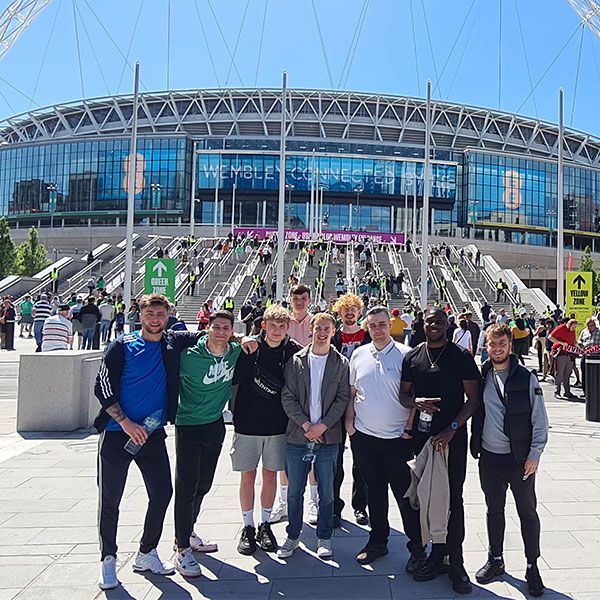Year 1 (national level 4):
Introduction to Journalism (30 credits)
Ever wondered what it takes to work in news, fashion, or sports? Master the key skills for finding and researching stories, tracking down sources, conducting interviews, and writing compelling headlines and story introductions. Plus, you'll learn how to structure a story that keeps your audience hooked.
You’ll also get hands-on experience creating podcasts to share stories across news, fashion, and sports journalism. How about using social media and analytics to promote your work and reach a wider audience? You’ll explore all of that too.
Digital Publishing (30 credits)
Want to capture the attention of online audiences with compelling stories? This module will teach you how to present news in fresh, digital-friendly ways, from video journalism to data-driven storytelling.
You'll also develop key journalism skills, like finding stories, interviewing sources, crafting content that grabs attention and producing impactful, multimedia news for today’s online audience.
Media Law and Ethics (30 credits)
Navigate key issues like libel, privacy, copyright, and court reporting across print, online, broadcast, and social media.
You'll also get hands-on experience checking copy for legal risks, writing court reports, and applying industry standards like the Editors’ Code and the Ofcom Code.
At the end of this module you’ll have the confidence to report with accuracy, integrity, and legal know-how – ready to tell important stories responsibly.
Club Journalism and Communications (30 credits)
Ready to create and share exciting sports content for a professional organisation? In this module, you’ll learn how to produce, edit, and share exciting multimedia content across digital platforms. From delivering live matchday updates to crafting compelling stories that connect with fans, you’ll gain real-world experience in sports communication.
You’ll build valuable relationships with athletes, coaches, and the media while learning how to create credible, engaging content that goes beyond the usual promotional material.
Master the skills to manage a constant stream of content, no matter a team’s performance, and keep fans engaged every step of the way. Plus, you'll also be prepared to tackle public relations challenges in the world of professional sports.
